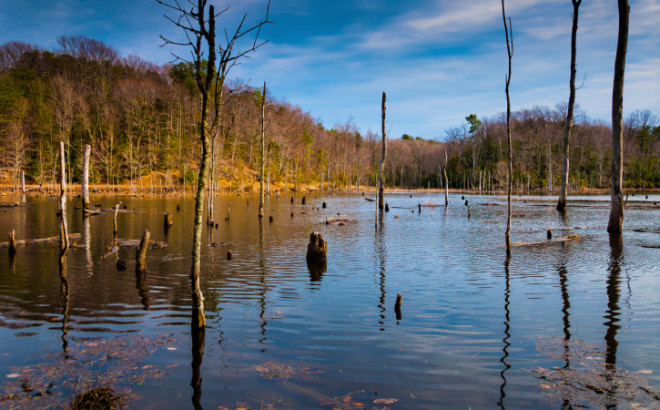Learning to help the bay
A few years ago, we went sailing with a friend and her husband on the Chesapeake Bay. It was a beautiful day—though no strains of Christopher Cross ran through my head—and an unbelievably calming experience.
Of course, when you do that, you tend to take for granted the quality of the water beneath you. But my friend indicated the Chesapeake was still on the mend … but had made progress thanks to people such as those responsible for the grant below, which will have a positive effect not only on the bay but also on the lives of at-risk youths …
Sail on to read some interesting information …
-William Swanger, Office of Corporate Communications, Diakon
Recently Diakon Youth Services received a grant from the Chesapeake Bay Trust for an environmental education project in which 40 Capital Region adjudicated children and youths, grades 7 through 12, will learn ways in which they can positively influence the water quality in the Chesapeake Bay Watershed by learning how to monitor stream quality and participating in a three-day residential field program at the Diakon Wilderness Center and a one-day field trip to one or more Chesapeake Bay Foundation study centers.
At the beginning of the 2015-2016 school year, students will research ways they can help to “Save the Bay,” identify specific, measurable actions they can take in their daily lives to improve the health of the Chesapeake Bay Watershed, and learn how to engage in advocacy to promote clean water.
As the Diakon Wilderness Center is located in a forested area with a creek running through it, direct experience with the environment is used to acquire student interest in preservation activities. Environmental science class is conducted in the environment about which they are learning. Furthermore, the students participate in a three-day field experience to a remote part of the Chesapeake Bay, so that they come in contact with the ecosystem to which the school creek ultimately connects.
Students will participate in hands-on learning and water-conservation activities at the Diakon Wilderness Center, which will demonstrate the effect of local actions on the bay ecosystem. It will benefit them by …
• Providing a learning experience that the students will be able apply to the real world.
• Giving students an opportunity to use leadership skills.
• Promoting self-efficacy in the student, so that they can learn and understand what it means to do something that affects others for a lifetime.
• Providing an experience they may not have the opportunity to have because of socioeconomics.
The goal of the project is to increase the awareness of what they can do locally to improve water quality in the Chesapeake Bay Watershed.
Plus, the students will see that learning is more then just sitting in a classroom. They will have the ability to learn firsthand how to apply what they learn to real-world issues.
Gwenn Miller Ftohidis, MPA
Director of Grants & Foundation Relations
Diakon Office of Development
Jeremias Garcia
Program Director, Center Point Day Program
Diakon Wilderness Center
Because we review comments, they do not appear immediately. Please do not submit each comment more than once. Please review our comment policy.


